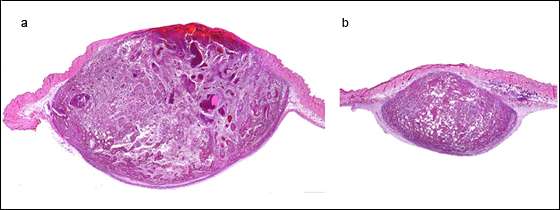Restoring natural immunity against cancers

Scientists at the Institut Pasteur and Inserm have successfully increased the infiltration of immune cells into tumors, thus inducing the immune system to block tumor growth. In an article published in Nature Immunology, the scientists show that, in combination with existing immunotherapies, this process efficiently destroys cancer cells.
Chemokines are small molecules that can attract immune cells towards inflammatory tissues, acting for example during tumor development or upon infection, in order to support migration of lymphocytes into diseased tissues. However, these molecules may be degraded by enzymes, a process that limits the influx of immune cells. For example, the chemokine CXCL10, which induces the recruitment of T lymphocytes into pathological tissues, is rapidly degraded by the enzyme dipeptidylpeptidase 4 (DPP4).
The Dendritic Cell Immunobiology Unit, led by Matthew Albert (Institut Pasteur and Inserm), had previously shown that increased levels of DPP4 and the degraded form of CXCL10 in hepatitis C patients correlate with patients' inability to respond to interferon treatment. Following these results, the scientists predicted and have now confirmed that inhibiting this enzyme could improve the efficacy of immune responses, in particular antitumor responses.
In a recently published study, Rosa Barreira da Silva, Matthew Albert and their colleagues showed that oral administration of a specific DPP4 inhibitor (sitagliptin) slows the development of several types of cancer in mice. In addition, the authors demonstrated that DPP4 inhibition increased the infiltration of T lymphocytes into tumors, and that the combination of this innovative treatment with existing immunotherapies eradicated the tumor.
Since health authorities have already approved DPP4 inhibitors for the treatment of type 2 diabetes, the conclusions drawn from these studies may quickly translate into clinical studies in humans. In fact, Matthew Albert's team, in collaboration with clinical colleagues, has already submitted a proposal for a phase I clinical trial, to evaluate the impact of sitagliptin treatment in patients with hepatocellular carcinoma.
The cross-disciplinary nature of the projects undertaken by the teams at the Institut Pasteur and Inserm, along with collaboration between scientists and clinicians, allows clinical observations and scientific discoveries to be rapidly applied for the management of human disease.
More information: Dipeptidylpeptidase 4 inhibition enhances lymphocyte trafficking, improving both naturally occurring tumor immunity and immunotherapy, Nature Immunology, DOI: 10.1038/ni.3201, June 15, 2015.
















